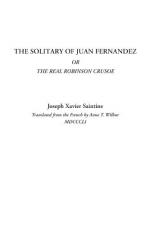For several days he saw himself condemned to absolute repose and a spare diet. His mouth, swollen, excoriated, refused all nourishment; his throat was burning; his body was covered with an eruption, and his languid and trembling limbs scarcely permitted him to drag himself to the stream to quench there the thirst by which he was devoured.
He believed himself about to die; and grief then imposing silence on pride, with his eyes turned towards the sea, he allowed a long-repressed sigh to escape his heart. It was a regret for his absent country.
Very soon these alarming symptoms disappeared; his strength returned; his water-cresses and wild sorrel completed the cure. Would he have dared to ask it of the other productions of his island? He had become suspicious of nature; these, at least, he had long known.
Scarcely had he recovered, when the want of tobacco made itself felt anew with more force than ever. What to him imports experiment, what imports danger? Is it not to procure this precious, indispensable herb,—which the world had easily done without for thousands of years?
This time, nevertheless, become more prudent, he no longer addresses himself to the sense of taste; but to odor, to that of smell. He has resolved to dry the different plants which appear to him most proper for the use to which he destines them, and to submit them afterwards to a trial by fire. Will not the smoke which escapes from them easily enable him to discover the qualities which he requires, since it is in smoke that they are to evaporate, if he succeeds in his researches?
Of this grand collection of aromatics, two plants, at last, come off victorious. One is the petunia, that charming flower which at present decorates all our gardens, whence the enemies of tobacco may one day banish it; so it is only with trembling that I here announce its relationship to the nicotiana; the other, which, like the petunia, grows in profusion in the islands as well as on the continent of Southern America, is the herb coca, improperly so called, for its precious leaves, which are to the natives of Peru and Chili, what the betel is for the Indians of Malabar, grow on an elegant shrub.[1]
[Footnote 1: The erythroxylum coca.]
These two plants, separately or together, composed, thanks to a slight amalgam of chalk, sea-water, and bruised pepper-corns, the most delicious tobacco.
Now, half awake, Selkirk smokes, as he busies himself with constructing some necessary article, such as a ladder, a stool, a basket of rushes, with which he is completing the furniture of his house; he smokes while fishing, and while hunting; on his return to his dwelling, he lies down at the entrance of his grotto, on his bank of turf, re-lights his pipe at his fire, and smokes; at the hour of breakfast or of dinner, seated beneath the shade of his mimosa, his elbow on the table, his Bible open before him, he smokes still.




